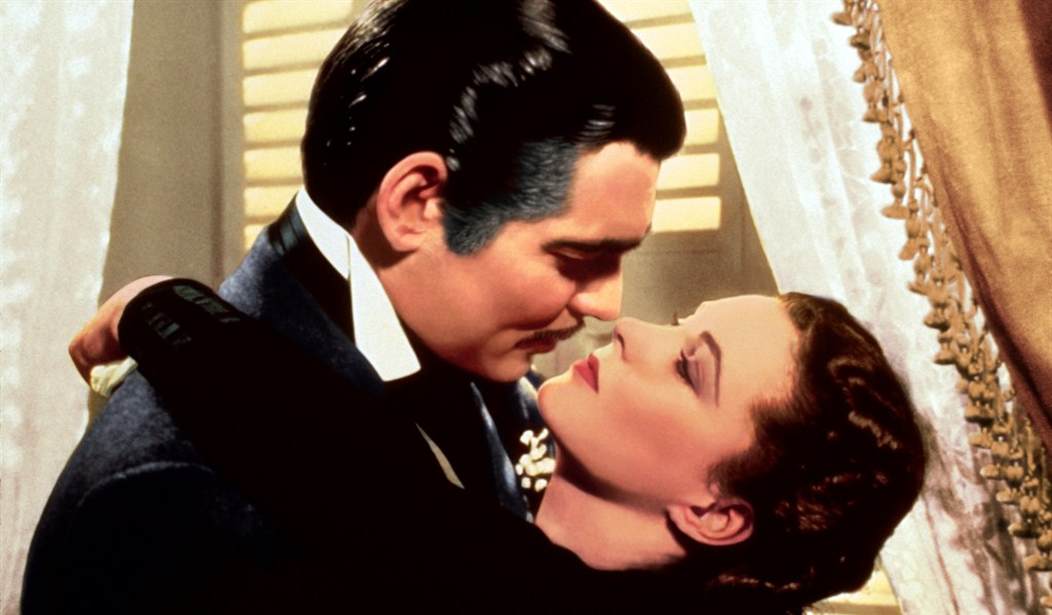Americans love stereotypes. It makes life a lot easier if you can catalog people according to certain ethnic or racial characteristics instead of seeing them as individual human beings.
This is nothing to apologize for. It’s how our minds are hardwired. We are born to see patterns in everything from clouds to people. It helps our brain organize and familiarize itself with the world. In short, it’s comfort-thinking.
I know that it’s racist and hateful to even suggest it, but blacks have a stereotypical view of other people too — other races, other ethnic groups. It is part of the human condition and last time I looked, even liberals are human so they should “check their stereotypes” too.
Overcoming stereotypes is a never-ending personal battle that we are doomed to lose. What we can do is think. Humans are pretty good at that and being conscious of stereotypes is the first step to dealing with them.
Hollywood did more to perpetuate and popularize stereotypes than any other medium. Even if you’re a racist kluxer, it’s hard to watch Birth of a Nation and it’s nauseating depiction of slavery and the KKK. Other films might be unintentionally funny, like seeing Bing Crosby in blackface in the classic Holiday Inn.
Those films are rarely shown today but are still considered to be “classic” films. They are obviously painfully racist or out of date. But there is a move afoot in Hollywood to give certain classic films “context and framing” — someone’s idea of why this film is “insensitive.”
HBO just recently deep-sixed Gone With The Wind because of its gross stereotypes of slaves. It’s returning with the ubiquitous “context and framing” — a swollen list of instructions by Jacqueline Stewart, an African American film and media studies professor at the University of Chicago, showing why GWTW is a problem.
“I will provide an introduction placing the film in its multiple historical contexts. For me, this is an opportunity to think about what classic films can teach us,” Stewart wrote.
“Right now, people are turning to movies for racial re-education, and the top-selling books on Amazon are about anti-racism and racial inequality. If people are really doing their homework, we may be poised to have our most informed, honest, and productive national conversations yet about Black lives on screen and off,” she added.
If people “did their homework” when they were kids, they wouldn’t need some bloated explanation for why showing black people unrealistically and stereotypically is bad.
But the nanny state feels compelled to hire a tutor to tell us what we already know. And the question is, will we be “taught” by substituting one set of stereotypical beliefs for another?
There is a political message at work here — subtle and not so subtle — that basically says, “White Man Bad.” Most of us don’t feel the need to apologize for the actions of our ancestors. The sins of our fathers and mothers should not be visited upon us, their children. That’s a fundamentally American belief, a founding principle that allowed tens of millions of people to come here and start all over again.
Hollywood doesn’t make movies about America’s founding principals anymore. They wouldn’t sell overseas where anti-Americanism abounds or the principals espoused in the film are dangerous to foreign governments. So Hollywood makes nice, safe, politically correct films that bend over backward to avoid portraying stereotypes.
And not just stereotypes of blacks. Hollywood’s past is replete with insensitive, racist, illiberal characters that could lead to banning dozens of them.
It’s now widely accepted that despite being a beloved classic, “Gone With the Wind” needs an explanation of its context when it’s screened on TV or in theaters. HBO Max says it will eventually restore the Oscar-winning film to the service, but with “context and framing.” It’s a start, but Hollywood’s vaults are filled with movies that could benefit from an explainer or disclaimer about outdated depictions of race, sexuality, disabilities and more.
It’s not “widely accepted” that GWTW “needs” an explanation. It is Hollywood’s liberal elites who believe Americans are all dumb as a post and need to be instructed on what to think and how to feel. Variety has “10 films that need to be presented with disclaimers and discussions before and after a screening.” Among them are predictable choices, including The Searchers, John Wayne’s anti-Indian crusade, and The Children’s Hour about lesbianism.
But this is the sort of “objectionable” film they want to see given “context and framing.”
“Dirty Harry” (1971)
Lt. Harry Callahan of the San Francisco Police Department is determined to uphold the law, even if he has to break the rules. It started a craze for movies about maverick cops who get the job done by following their instincts rather than the law. The film mocks liberal judges and do-gooders, and the villain claims police brutality, planting the seed that other such charges are fake moves to get sympathy.
I guess the violence is just fine, but depicting liberals in a bad light is a no-no.
First will come the “context and framing.” Then, scene cutting. Finally, the films will be disappeared, mention of them in film books will be banned, and our collective memory wiped.
It’s all so unnecessary. People should be free to see a film with any perspective they choose and not have one manufactured for them so that they think the “right” way.










Join the conversation as a VIP Member